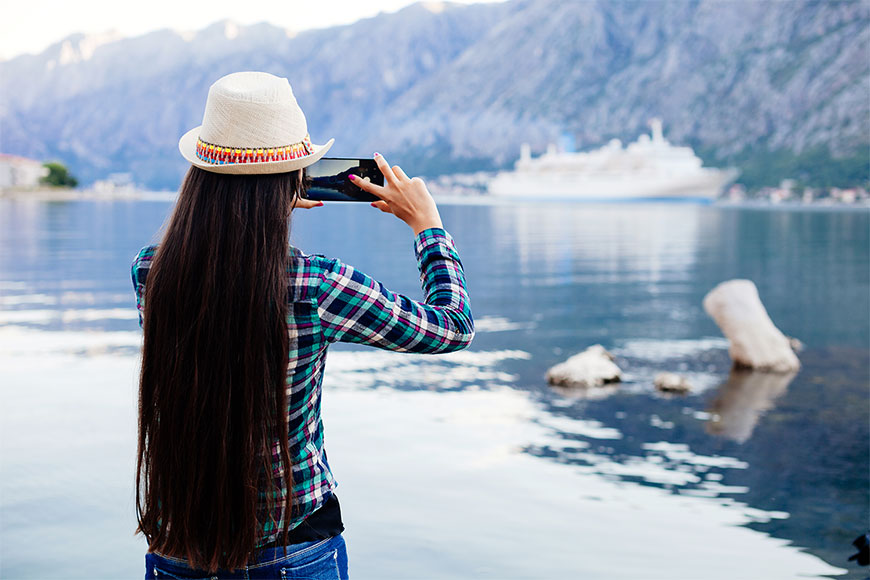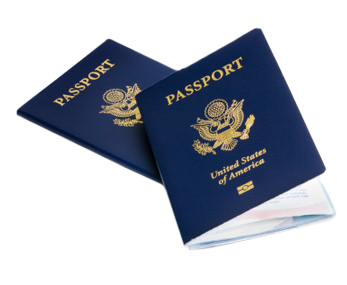Travel Safety (Pt. 1): 5 Things to Consider When Planning Your Next Trip
In today’s hustle-bustle, multi-tasking, tethered-to-our-cell phone world, getting away from it all is more important than ever.
It’s in our best interest to take time off for ourselves to reduce our stress levels and relax, refresh, and recharge. It allows us to come back to work with renewed energy and spirit. It’s amazing what a simple change of scenery can do.
When we finally do get away, safety issues are the last thing we want to think about. But travel safety is an important consideration and it entails a whole lot more than just locking your hotel room door.
Before you go on your next trip, ask yourself the questions below. Your answers will help you plan a trip that is worry-free and enjoyable.
1 – WHO are you traveling with?

TRAVELING ALONE
Great! I travel alone from time-to-time and love it. Solo travel offers you a lot of freedom. You can do what you want, when you want, and for as long as you want. Time alone can be good for the soul. However, solo travel means you’ll have to be more careful and aware of your surroundings.
TRAVELING WITH OTHERS
Traveling with a friend, significant other, or a group can be a lot of fun. There’s also safety in numbers. Be sure you and your travel companion(s) figure out what you’ll do if you get separated from each other.
2 – WHERE are you going?
The safety of your destination is an important factor to consider. Before you finalize your travel plans, consult governmental sources such as the U.S. Department of State for travel alerts.
If there are any alerts, read them carefully. There are different levels of alerts and even if there’s one for your destination country, it may only apply to a small area.
For example, there may be a political protest in the capital city of a given country, but the beaches or mountains you plan to visit are unaffected. Exercise caution, but also use your own judgment.
3 – WHEN are you going?
Heading to a popular destination during a busy time of year? Locations that are especially popular with tourists are also popular with pickpockets and other unsavory characters. Being aware of your surroundings and your possessions will be especially important in these places.
4 – WHAT are you bringing?

JEWELRY & ACCESSORIES
Although it may be tempting to bring that expensive watch, that designer bag, or your blingiest jewelry for a night on the town, those things are better left at home. Flashy jewelry and accessories can attract unwanted attention.
Case in point: Kim Kardashian, an American celebrity, was bound, gagged, and robbed at gunpoint in her Paris hotel room in 2018 because she constantly posted photos of herself dripping with diamonds and other jewels on her social media accounts. These posts caught the attention of the robbers who concocted the plan and stole $11 million worth of jewelry.
Don’t let something like this happen to you.
YOUR PERSONAL & FINANCIAL INFORMATION
Has your wallet or purse even been lost or stolen? If it has, you know what a time-consuming pain in the butt it is to replace its contents.
To protect your sensitive information:
- Take pictures of the front and back of your driver’s license and debit/credit cards.
- Take pictures of the inside 2 pages of your passport (the ones with your photo and personal information).
- Save these photographs in a secure, password-protected environment online such as Google Drive, Evernote.com, Dropbox.com, or Box.com.
Why should you do this? So you’ll be able to remotely access all of the important information you’ll need (ID/account numbers, expiration dates, security codes, cystomer service phone numbers) in the event that your IDs or debit/credit cards are lost or stolen.
 DRIVER’S LICENSE & PASSPORT
DRIVER’S LICENSE & PASSPORT
If your driver’s license is lost or stolen, you may be able to order a replacement online, but it will take some time to receive.
If your passport is lost or stolen when you’re traveling internationally, you could have trouble traveling between countries or returning home. You can visit your country’s embassy or consulate for a replacement. Having a digital copy of your passport may make it easier to get that replacement quickly.
In a pinch, the copy of your driver’s license or passport may come in handy to verify your identity.
DEBIT & CREDIT CARDS
Before going on a trip where you’ll be using your debit and/or credit cards frequently, contact the issuing companies to alert them. If you don’t notify them of your travel plans and they see suspicious activity on your account, they may suspect fraud and freeze your account. Then, you’ll really have problems!
5 – WHAT are your travel plans?
YOUR ITINERARY
Regardless of where you’re headed, it’s a good idea to share your itinerary with someone else. Whenever I travel for more than a few days (whether I go alone or with my boyfriend), I always email my sister a copy of my itinerary including flight information (if I’ll be traveling by plane), lodging details, and the dates I’ll be at each destination. That way, my family will know where I am in case of an emergency.
And speaking of emergencies…
TRAVEL INSURANCE
To buy or not to buy – that always seems to be the question. There are several types of travel insurance to consider:
- Trip Protection – Trip delay, cancellation, or interruption due to an unforeseen event
- Emergency Medical Insurance – If you’re injured in an accident or suddenly get sick while traveling
- Evacuation & Repatriation – When your illness or injury stops you in your tracks & you have to get home for treatment
- Gear Protection – Protects you when your gear is lost, stolen, or damaged
Probably the most common types of travel insurance purchased are trip protection and emergency medical insurance.
Trip Protection (aka Money Protection) – If the cost of your trip is more than you can comfortably lose, then spending a little bit more to purchase trip protection is definitely worth it. Many credit cards offer travel insurance as a cardmember benefit, so be sure to check your account details before buying it.
Emergency Medical Insurance and Evacuation & Repatriation Insurance (Health Protection) – Accidents and unexpected illnesses can happen anywhere. To be sure you can get treated abroad, you may want to consider emergency medical insurance. If you’ll be in a country that doesn’t offer good medical services, you may also want to consider evacuation and emergency repatriation insurance. This type of insurance will cover medical evacuation (which can cost up to $300,000!) and will get you home if doctors recommend you return home for treatment.
To get a quote before your next trip abroad, check out World Nomads.
* All policies have limitations, so be sure you fully understand what you’re getting before you buy one.
Hopefully, you learned a few new ways to protect yourself before you travel so you when you finally go on your trip, you can focus on relaxing and enjoying yourself.






